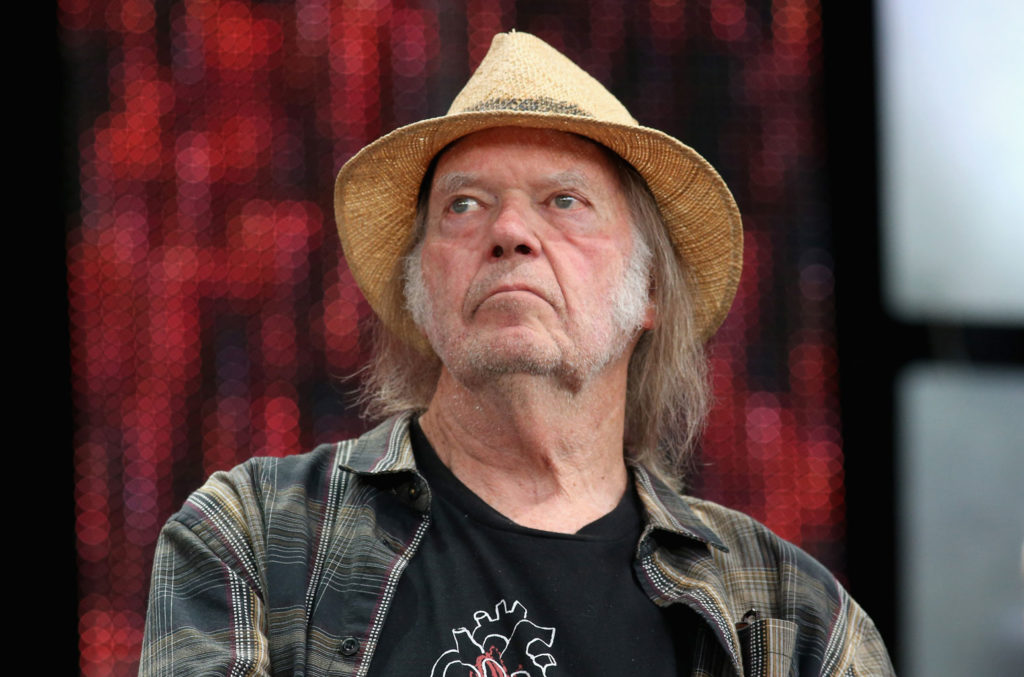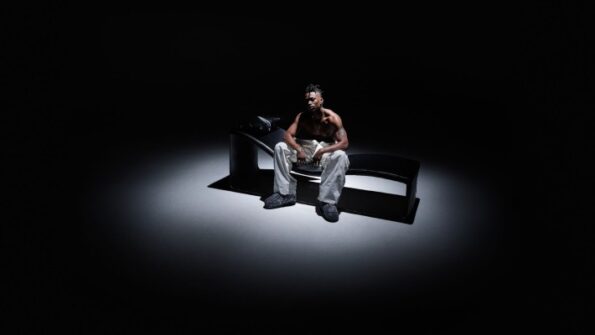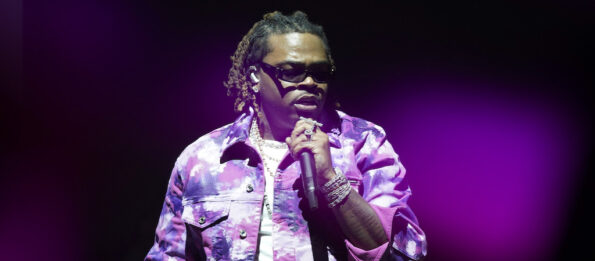The copyright lawsuit states Young "in good conscience cannot allow his music to be used as a 'theme song' for a divisive, un-American campaign of ignorance and hate."
Neil Young is suing President Donald Trump‘s presidential campaign for playing his music at rallies, saying his songs “Rockin’ in the Free World” and “Devil’s Sidewalk” have been used “for a divisive, un-American campaign of ignorance and hate.”
The copyright infringement lawsuit was filed Tuesday (Aug. 4) in the U.S. District Court in the Southern District of New York and claims Trump’s campaign has used Young’s music “as a ‘theme song.'”
“The complaint is not intended to disrespect the rights and opinions of American citizens, who are free to support the candidate of their choosing,” according to the complaint, but noted Young could not “good conscience cannot allow his music to be used” in this way.
The complaint states that Trump’s campaign had played both of Young’s songs numerous times at rallies and political events including as recently as the Tulsa rally on June 20. Trump did so without neither a license nor Young’s permission to play those two songs at any public political event, the lawsuit notes.
The iconic rocker has been outspoken since 2016 against Trump’s continued use of his songs, beginning when “Rockin’ in the Free World” was used to announce Trump’s candidacy for president. Young’s complaint states that Trump’s campaign has willfully ignored his wishes to not play those songs and has proceeded to play them despite not having the required licenses.
Young — who is being represented by Ivan Saperstein of Silverstein & Saperstein and Robert Besser — is asking Trump’s campaign be permanently stopped from publicly performing those songs, as well as any other Neil Young songs. He is also asking that Trump’s campaign be ordered to pay his statutory damages between $750-$150,000 for each infringement as well as reasonable attorney fees.
The campaign may be under the mistaken assumption that a BMI or ASCAP performance license for a venue will extend to an event at that venue, but that is actually not the case, says Richard Busch, a copyright expert, who heads King & Ballow’s entertainment and intellectual property litigation division.
“Events organized by a third party would need to get their own ASCAP or BMI license to publicly perform the music,” says Busch. “In addition, if the campaign is being broadcast on television or on the internet, they would also need a synchronization license from the publisher or songwriter to be able to synchronize the music with the video.”
However, even if the campaign applied for license, Young has the right to specifically exclude ASCAP and BMI from granting the rights to license his songs. Busch says the bottom line is that if the Trump campaign did not obtain the needed licenses, it faces liability not only for copyright infringement but also potentially for state law claims like false endorsement, which an artist may assert when a politician’s unauthorized use of music implies that he or she supports the view of the candidate.
“No campaign should use an artist’s song without permission because it undeniably constitutes at least an implied endorsement of the candidate by the artist,” says attorney Lawrence Iser, managing partner at Kinsella Weitzman Iser Kump & Aldisert, who is not associated with the case but has previously represented Jackson Browne and David Byrne in copyright cases against politicians for unauthorized music use in commercials. (Both cases were resolved by confidential financial settlements as well as a filmed public apology, according to Iser.) “But it will be hugely expensive for Neil to spar in court with the deep-pocketed Trump campaign.”
He continued, “There’s a huge factual issue of whether ASCAP did in fact exclude Neil’s songs from the Trump license, as well as the legal issue of whether ASCAP can legally exclude the songs in light of the antitrust consent decree, entered into in the 1940s, where it agreed that it must provide licenses to the songs in its catalogs upon request. There are very important issues of copyright, antitrust and artists’ rights at play.”
Trump’s campaign has not responded to Billboard’s request for comment.



